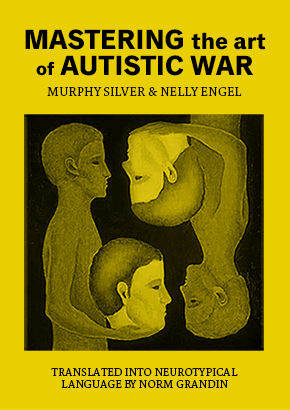When I was a teen, I often got into heated discussions where I made my arguments passionately, but this led to tremendous frustration because—although I knew I was often right about the points I made—somehow I could not get my point across. If only I had some tactics to better persuade those I would interact with!
Arguing with passion
Once in my late teens, I was singularly in a debate against the rest of my family (of five), who insisted water has no nutritional value. I was adamant on the fact that this defied logic, because water—unless distilled—contains minerals, and albeit the nutritional value is vanishingly small, it is not zero.
The discussion continued for too long, and I walked away feeling no respect was won, and some respect may even have been lost. Although I had the right arguments—and as it turns out, after later checking up on the facts online, I had science on my side—I had effectively lost the debate. It isn’t easy debating a whole family on your own, but I definitely could have done better.
An important rule I learned is that:
Having passion is great,
but arguing with passion
can potentially undermine
your ability to persuade.
And here I think a lot of autistics might have something to learn. We can be very invested in our interests and our arguments, but often taking a step back is important.
I think it is important to work on our persuasion skills, our ability to communicate our ideas, and our ability to make ideas accessible to others. One might call this is the autistic art of war, or the art of autistic war.

So here are two persuasive tactics, which might give you the power not only to persuade, but guide discussions into more constructive directions, where ideally everyone walks away having learned something new.
Tactic 1 — Understand your opponent
Even when you do not share your opponent’s beliefs, it is important to try to understand them; do your best to understand why they came to those beliefs. Considering autistic people are said to have a low theory of mind, this may benefit them in terms of understanding others and constructing their arguments in relation to them, but it also serves a greater point of persuasion.
Show them you understand why they believe the things they do. This allows them to open up more about their own beliefs. Keep calm rather than get overly passionate, and you will walk away with much more information. Showing a level of understanding—if not outright empathy—makes the other also more likely to listen to your arguments.
Example on how not to do it:
When I was a teenager, I would often get into debates about religion and theology. I learned a lot along the way, but I also spent a lot of time debating people that really didn’t present anything new to me.
I debated with them because I wanted to be challenged with good arguments, but I probably frequently spoke with a level of condescension rather than that I was genuinely trying to learn something new. I often won arguments but took away nothing from the discussions.
Nowadays, my passion lies more in beliefs and theology at large, rather than any specific belief system. I am still eager to hear strong arguments for theism, but now it is no longer to challenge me, but so that I may learn something. Be open to the arguments of your opponent. At the very least, you may gain a deeper understanding of the common arguments, and how these arguments and justifications emerge.
Oh and also, it is probably best to see the person you debate not as a genuine opponent, but as a partner in learning.
Tactic 2 — Pace your reality
Acknowledging the strong arguments behind people’s beliefs is important, even if you do not share them.
You may want to point out an argument of your opponent that is particularly good, or tell them you understand why they think that way. Although that may sound like it defeats the purpose of persuasion.
But it actually increases your chance of the other person seeing your point of view because they get to walk away not feeling stupid. People often resist changing their ideas because they do not want to risk appearing dumb. So using sarcasm and ridicule is not a good tactic of persuasion.
By showing that there are good arguments to be made for both sides you make it more likely for the other person to hear your arguments and change their mind, as it no longer is a competition between who is right, but an exploration of ideas. You thus allow the other to change their mind, rather than to remain defensive and double-down.
So if persuasion is the objective, you must respect and validate your opponent.
Finally, if they do change their position, it is very important to prevent your opponent from feeling stupid about their original point of view.
This is really the way to persuade people. Provided, of course, they are willing to listen to reason, and you actually have something reasonable to offer.
Of course, there is so much more to learn about communication and persuasion tactics than covered in this relatively short post, but if I had really understood these two tactics when I was younger, I would have learned a lot more, and I might have had a greater influence in my writing.
What were often countless pages worth of discussions in a seemingly endless effort to convince someone, could have been much shorter exchanges where either the right intellectual environment is created to allow the other to change their minds without feeling like they have lost a battle, or, if they are unwilling to listen, walk away knowing you have at least tried.
Comments
Let us know what you think!